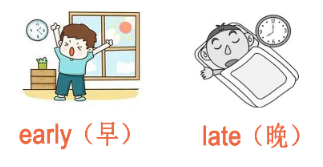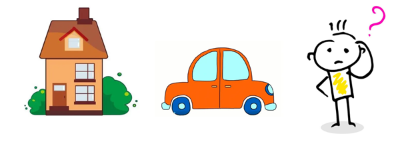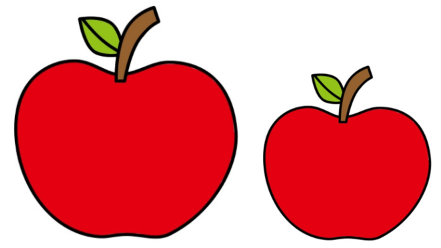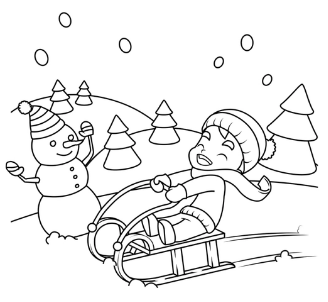连词,顾名思义,是一种起连接作用的词

E.g. There are many apples and bananas on the desk.
这里有许多苹果和香蕉在桌子上。

E.g. I get up early but my brother get up late.
我起床很早但是我的兄弟起的很晚。

E.g. Which should I buy first,the house or the car?
我首先应该买房子还是小汽车呢?

E.g. This apple is smaller than that apple.
这个苹果比那个苹果小。

E.g. I don’t like summer because it’s very hot
我不喜欢夏天因为太热了。

E.g. It’s snowing outside,so he is very happy.
外面下雪了,所以他非常开心。
连词的分类
根据连词在句子中表示逻辑关系的不同,也可分为以下四类:
because,for,so,since(既然)
either…or… (不是 … 就是…)两者之一
neither…nor…(既不 … 也不 …)两者都不
both…and… (… 和 … 都 …)两者都是
not only … but also …(不仅… 而是…)
when(当…时候),as soon as(一…就…)
表示让步的:although/though(尽管)
常见连词的用法
用“and”连接多个对象时,最后两个对象之间用“and”连接,前面的其他对象间用逗号。
E.g. I can see a dog ,a cat and a bird in the picture.
and 通常用在肯定句中,而 or 通常用在否定句和疑问句中
E.g. He likes milk and juice.
E.g. He dose’s like milk or juice.
E.g. Which do you like better,apples or pears.
在同一个句子中,不能同时出现because和so。
Because it’s very hot,so I want to buy some ice-cream.
It’s very hot,so I want to buy some ice-cream.
Because it’s very hot,I want to buy some ice-cream.
用 or 连接两个词或词组时表示“或者”,若连接两个句子,则翻译为“否则”
E.g. Do you go to school by bus or on foot?
E.g. Hurry up,or we will be late for school.
though / although 不能和 but 连用
Although he is sixty,but he is very strong.
Although he is sixty,he is very strong.
He is over sixty,but He is very strong.








